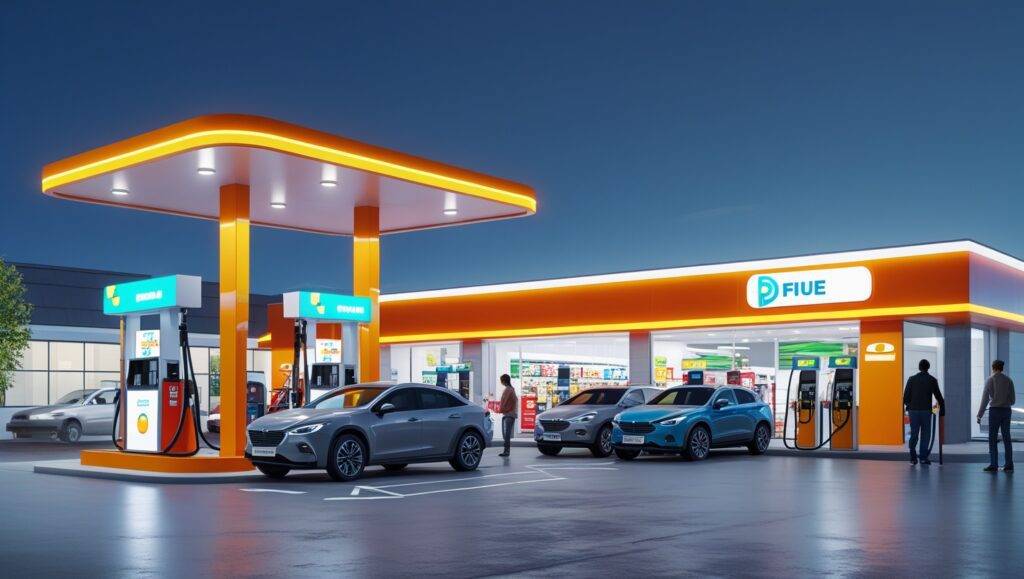Introduction
The retail industry is changing rapidly, and one phrase getting attention today is retailers entering fuel business. What was once dominated by oil and gas companies has now become an attractive opportunity for supermarkets, convenience stores, and even online retail giants. This movement raises questions. Why are retailers moving into fuel? What strategies will help them succeed? And how can they overcome the challenges of stepping into such a competitive and regulated sector?
Reach out latest news about retailers entering fuel business
In this blog post, we will explore proven strategies for retailers entering fuel business, address common questions, and highlight how this move can become a long-term success story.
Our more Blogs: How to Start Personalized Phone Case Business: #1 Idea to Make Money, How to Start a Business of Digital Marketing: SEO (Search Engine Optimization), Contact Marketing, and Social Media Management
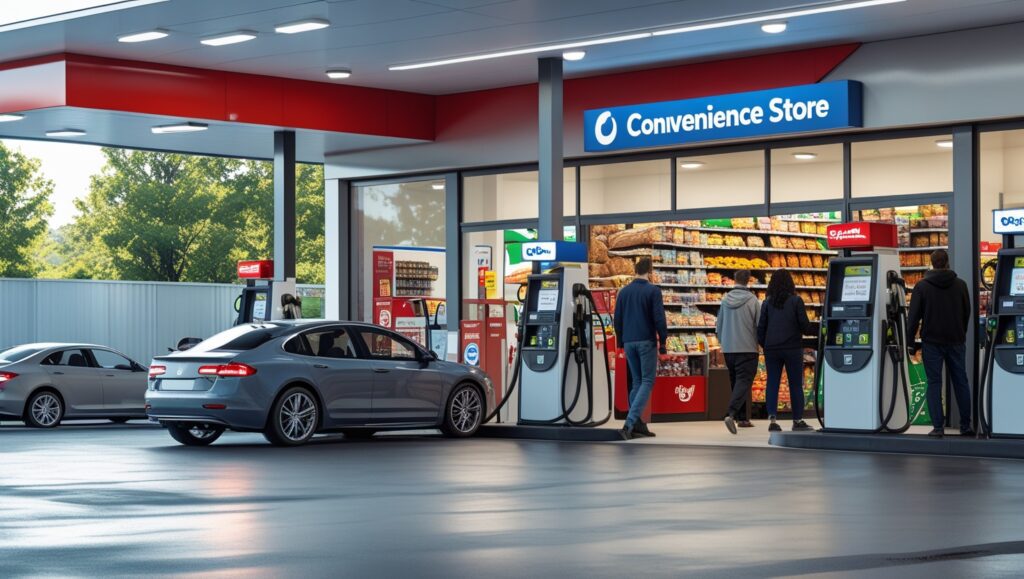
Why Are Retailers Entering Fuel Business?
Before diving into strategies, it’s important to understand why this trend is happening. The reasons include:
- Customer Traffic: Fuel stations naturally bring in consistent daily visitors, giving retailers a chance to capture more customers.
- Cross-Selling: Customers stopping for fuel often buy snacks, groceries, or other essentials when stores are nearby.
- Brand Visibility: Adding a fuel station increases brand presence and encourages customer loyalty.
- Revenue Diversification: Fuel retailing opens a new income stream at a time when traditional retail margins are under pressure.
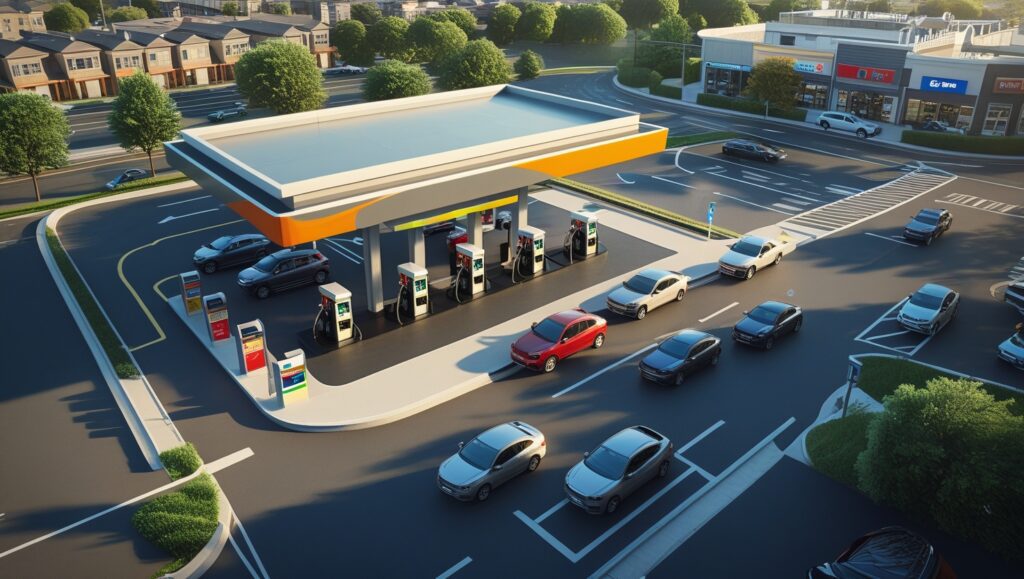
Strategies for Retailers Entering Fuel Business
1. Choose the Right Location and Accessibility
Success in fuel retail depends heavily on location. For retailers entering fuel business, it is vital to target high-traffic areas such as highways, urban entry points, or busy residential zones.
Counter Question: Isn’t prime location already dominated by oil companies?
Answer: While many top spots are taken, there are still untapped suburban areas where retailers can combine fuel with grocery or convenience services. Partnerships or acquisitions of small independent stations also open doors.
2. Integrate Retail and Fuel Offers
Retailers already have strong ecosystems. By linking fuel sales with store promotions and loyalty programs, they can strengthen customer relationships.
Examples:
- Discounts on fuel with grocery purchases.
- Reward points on fuel redeemable in-store.
- Exclusive bundle deals for fuel customers.
Counter Question: Will customers care about integrated offers?
Answer: Yes. Shoppers value one-stop solutions. If they can fuel up and shop while enjoying discounts, they are more likely to remain loyal.
3. Adopt Technology and Digital Payments
Today’s customers expect speed and convenience. For retailers entering fuel business, investing in technology is essential.
Ideas:
- Mobile apps for fuel payments.
- Contactless readers at pumps.
- Integration with digital wallets.
- Real-time price updates on apps.
Counter Question: Isn’t this costly?
Answer: Initial costs may be high, but long-term benefits in efficiency and customer loyalty outweigh the expense.
4. Prepare for Sustainability and EV Growth
As the shift toward clean energy grows, retailers entering fuel business must look beyond traditional fuel.
Steps:
- Install EV charging stations.
- Offer biofuels or blended fuels.
- Adopt eco-friendly practices such as paperless receipts.
Counter Question: Will EV chargers at fuel stations really be used?
Answer: Yes. Many EV owners prefer charging where they can shop, creating cross-selling opportunities.
5. Partner with Fuel Suppliers
Retailers don’t need to manage the full fuel supply chain. Partnerships reduce risk.
Approaches:
- Franchise agreements.
- Long-term contracts for stability.
- Co-branding with fuel providers.
Counter Question: Does this limit independence?
Answer: Partnerships bring expertise, letting retailers focus on customer service while suppliers handle logistics.
6. Upgrade the Convenience Store Experience
Many fuel stations rely on basic stores. For retailers entering fuel business, this is a chance to shine.
Ideas:
- Fresh food, bakery, or coffee counters.
- Healthier food options.
- Seasonal and limited-time deals.
Counter Question: Isn’t this complex to manage?
Answer: Retailers already excel at variety management. Extending this to fuel station stores leverages their strengths.
7. Leverage Data and Insights
Retailers have customer data that traditional fuel companies often lack. This makes retailers entering fuel business better positioned to personalize experiences.
Examples:
- Personalized discounts.
- Location-based offers.
- Predictive analytics for inventory.
Counter Question: Does data really matter in fuel?
Answer: Yes. While fuel margins are thin, personalized offers drive higher profits through additional retail sales.
8. Prioritize Safety and Compliance
Fuel retailing is highly regulated. Safety and compliance are non-negotiable.
Counter Question: Does this slow growth?
Answer: While it adds responsibility, compliance builds trust with both regulators and customers, protecting the brand long term.
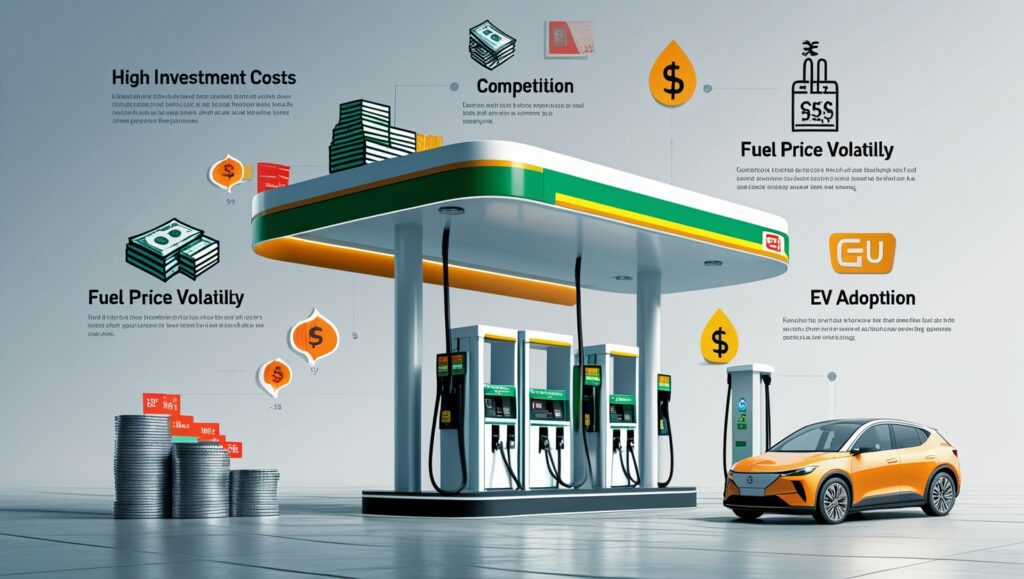
Challenges for Retailers Entering Fuel Business
- High Investment Needs
- Established Competition
- Fuel Price Volatility
- Changing Mobility Trends (EV adoption)
By anticipating these, retailers entering fuel business can design flexible models that adapt over time.
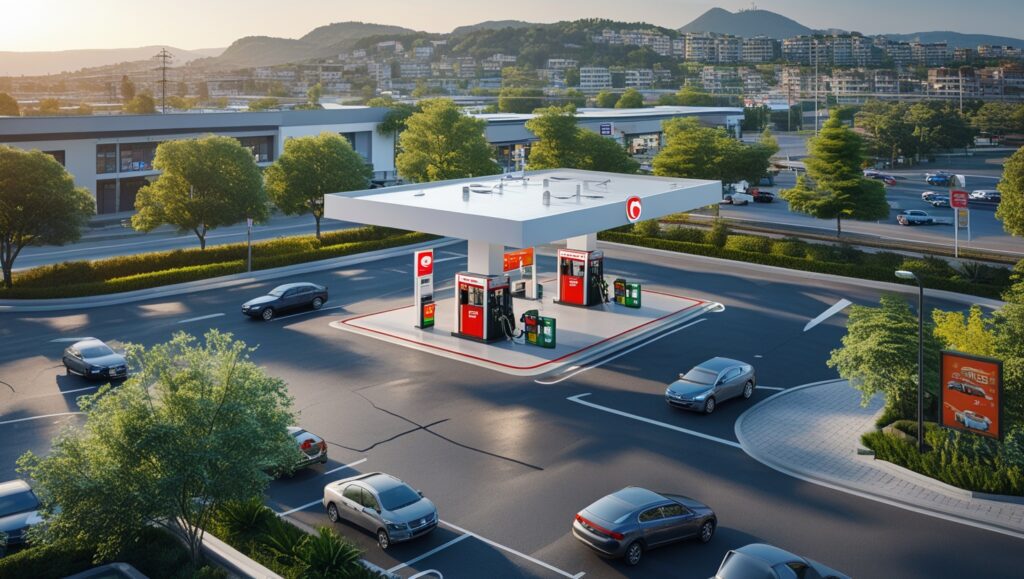
Conclusion
For forward-thinking brands, retailers entering fuel business is more than just diversification. It’s about creating a customer ecosystem that combines fuel, retail, and convenience in one experience. While the industry comes with challenges, strategies like technology adoption, sustainability planning, and loyalty-driven cross-selling can turn fuel retailing into a growth engine.
FAQs
1. Why are retailers entering fuel business?
To increase traffic, cross-sell products, improve brand visibility, and diversify revenue streams.
2. Is it risky for retailers entering fuel business?
Yes. High investment, compliance, and competition add risks, but smart strategies help overcome them.
3. How can retailers entering fuel business stand out?
By offering loyalty programs, better convenience stores, and personalized services.
4. Will EV growth affect retailers entering fuel business?
Yes, but fuel will remain relevant for years. Retailers can add EV chargers to future-proof their sites.
5. Do retailers entering fuel business need full supply chain control?
No. Partnerships with suppliers can reduce risks and provide expertise.
6. How do retailers entering fuel business improve profits?
By cross-selling groceries, enhancing convenience stores, and using customer data for targeted offers.



